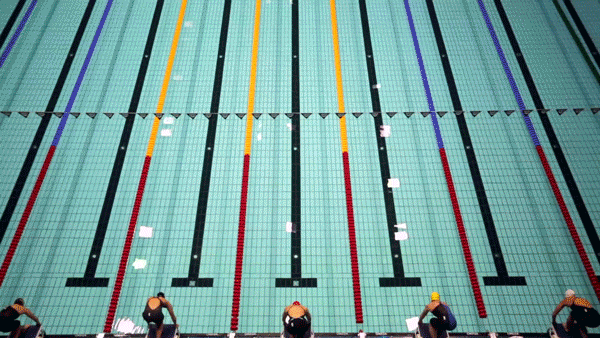
Politics & Society
Is this summer a moment of truth for France?

As we head into the Paris Olympics, the mental health of elite athletes is finally becoming less stigmatised and that can only be a good thing
Published 23 July 2024
Australians love sport, and the Olympic and Paralympic Games are no exception. Ever since Cathy Freeman’s iconic gold medal run in Sydney became etched in Australia’s collective memory, we wait in anticipation as the Games roll around.
One thing that has changed drastically since those Games in 2000, is an increased focus on the mental health of athletes.
You may remember, during the COVID-delayed Tokyo Olympics, when the mental health of US athlete Simone Biles became a public talking point.
The world champion gymnast withdrew from a team event saying she needed to focus on her mental wellbeing and mindfulness after stress took its toll.
In many ways this felt like a watershed moment.
Even just three years on, there’s a far greater understanding of the psychological challenges faced by athletes.
Research is uncovering more and more about the mental health of elite athletes.
Here in Australia, recent research suggests that approximately 35 per cent of Australia’s elite athletes could meet the threshold for a diagnosable mental health problem.
These findings echo the rates found by other international studies into world-class sportspeople.
Overall, many studies suggest that elite athletes are at similar or slightly higher risk of mental ill-health than the rest of us.
There are several factors that are linked to increased mental ill-health among elite athletes.
These include injury and concussion, body image pressures, performance disappointments, exposure to harassment and harmful practices, financial and role insecurity, problematic environments, social and media abuse, athletic identity foreclosure and retirement.

Politics & Society
Is this summer a moment of truth for France?
Much of this has historically occurred within sporting environments that have high mental health stigma and low psychological safety, which until recently has drastically limited many athletes from seeking help and support.
Other research has found some groups may be at higher risk.
Consistently, women athletes tend to report worse mental health, likely stemming from a range of gender-based imbalances within elite sport.
Our research found that elite women athletes experienced more frequent adverse experiences, like financial hardship, discrimination and feeling undervalued.
The Olympic Games can become a catalyst for mental health problems to emerge among athletes under extreme pressure.
If we look at mental health within the context of the Games, we can broadly consider three distinct phases – pre, during and post-Games. It’s important that athletes – and their support teams – consider the many and varied needs within each of these periods.
If we look at the later stages of the pre-Games period, athletes are navigating their final preparations for Olympic and Paralympic team selection.
Often, there’s increasing internal and external pressure and expectation, in addition to altered support networks. This is a period many competitors see as the culmination of four long years of preparation and training – for those who are injured or not selected it can be particularly challenging.

Health & Medicine
The precision of vision for Olympic gymnasts and divers
During the Games, along with the pressure of competing in front of a global audience of millions, many athletes face increasing media demands.
While some athletes enjoy the heightened exposure, many, like Japanese tennis player Naomi Osaka, have described their difficulty navigating these pressures. On top of this, there’s the added scrutiny and criticism many Olympic hopefuls face directly via social media.
Performing well relative to personal performance expectations is a key protective factor for mental health.
While there is an element of luck involved when it comes to injuries or the fortunes of competitors, those athletes who can perform at their best under the most amount of pressure, are more likely to succeed.
Most athletes now dedicate significant periods of their training time on their mental game, using sport psychology to maximise the psychological characteristics associated with high performance.
But it’s actually during the post-Games phase that many athletes face some of their most difficult challenges.
Our research team studied this phase in returning Rio Olympians in 2016.
One of our key findings was that having a plan (like a holiday, further study or work) after this intense period of competition was critical to maintaining mental wellbeing.

Politics & Society
What does it take to run faster, throw further, jump higher?
In more difficult cases, this complex period can include feelings of isolation and loneliness, disappointment and even grief.
In fact, many Olympians use the term post-Olympic blues, to describe how they feel in the aftermath of such intense competition.
It’s not all bad news.
Most athletes have a wealth of internal and external resources to support their mental health. For every factor that can expose an athlete to increased mental risk, there are a myriad of protective factors too.
Sports organisations like the Australian Institute of Sport are devoting significant resourcing into supporting athletes’ mental health.
For example, athletes, coaches and staff can now access external psychological support through the newly established Mental Health Referral Network.
The International Olympic Committee has also devoted significant resources to support athletes at these upcoming Games.
Connecting athletes with mental health professionals can foster more helpful approaches to managing the stressors faced within elite sport.
Recently, the development of self-compassion and compassion-focused interventions has attracted increasing attention.
A growing body of research has consistently demonstrated that the ability of individuals to respond to distress and suffering with self-compassion is highly protective for mental health.
In recent years, growing research has explored how these approaches may be important among athletes.
Self-compassion appears to be an effective tool for responding to difficult sporting experiences, by combatting more harmful processes like shame and self-criticism.

Health & Medicine
Do we think about anxiety and depression differently now?
Among athletes, higher rates of self-compassion are associated with reduced psychological distress.
Elite sport is changing for the better.
Concepts like psychological safety and compassion are now commonplace, and athletes are becoming more and more comfortable seeking support.
Mental health is finally becoming less stigmatised in these high-performance competitions, and that can only be a good thing – both for the athletes themselves and for us, the spectators and supporters.
For more on this topic, listen to Dr Walton in this episode of PsychTalks, a podcast by the University of Melbourne's School of Psychological Sciences.